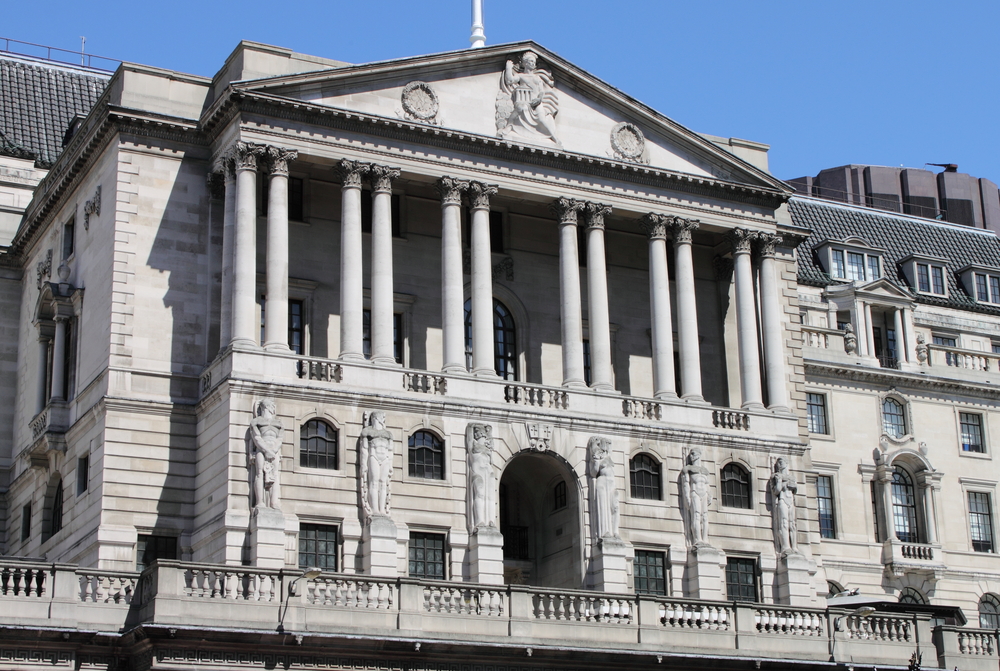Household Bills
Inflation set to fall to 8.4% as IMF says UK has avoided recession

Inflation is finally expected to start falling this week and is predicted to drop to 8.4% on Wednesday. Meanwhile, the International Monetary Fund has announced today that the UK has avoided a previously-expected recession.
This will be the lowest level seen in over a year and it will be a welcome relief for households amid the cost-of-living crisis. Yet it is still far off the Government’s target of 2% for inflation.
Financial experts are predicting the annual Consumer Prices Index (CPI) rate of inflation to fall to between 8% and 8.5% for April, from the 10.1% recorded in March.
A fall in inflation could also prompt an easing in interest rate rises from the Bank of England, which have been steadily going up over the last year. The base rate is currently at 4.5%, following another rise, of 0.25%, in April, and it is putting added pressure on those with mortgages.
Most experts expect it will rise again in June before beginning to fall.
Food prices and energy are major factors to inflation
Experts at Deutsche Bank have predicted inflation to fall to 8.3% this week.
Sanjay Raja, senior economist for the bank, said falling energy costs were a major factor on inflation and would bring the overall rate down by at least 2%.
He said: “Since our last update, two things have shifted our projections. First, energy prices. We’ve updated our forecasts for the Ofgem Price Cap.
“We now see the price cap settling around £2,050 in July, before grinding lower thereafter. Second, we now see food prices slowing more materially over the next couple of months as news of price cuts start to gain more traction.”
The bank expects inflation to be down to 4.5% by the end of the year.
Raja added: “Looking ahead, we continue to see inflation slowing further through the course of the year. Falling food prices over the coming months, falling energy prices from H2- 23, and some modest slowing in core goods and services inflation over the rest of the year will result in inflation slipping to just around 4.5% year on year by year end.
“We still maintain our view that CPI will land at, or around, target late next year.”
‘Unlikely to drastically change the outlook for UK rates’
Joshua Raymond, director at online investment platform XTB.com, said he expects inflation to drop to 8.3% tomorrow.
He said: “Whilst this would be the lowest rate of UK inflation since April 2022, it’s unlikely to drastically change the outlook for UK rates in the coming months, where the market is still forecasting around two separate hikes of 0.25%, yet that could change if we see UK inflation fall faster than expected to 8% or below.
“The UK’s central bank has long predicted inflation should slow from 11.1% to around 4% by the year end. Make no mistake, if data out on Wednesday shows that the UK inflation rate remains above 9%, the credibility of the Bank of England will face a significant threat and the market will quickly question if they have acted aggressively enough or not.”
‘Pressure unlikely to ease’
Sarah Coles, head of personal finance for Hargreaves Lansdown, said: “In April last year, the energy price cap was hiked by an eye-watering 54%, which has been part of the inflation equation ever since. This will fall out of the figures in April, to be replaced with the change in energy prices this April – which actually remained static thanks to the energy price guarantee. As a result, inflation is highly likely to be lower.
“However, when you translate this into actual bills, things are actually worse now than they were a year ago, because back then the price cap was £1,971, and now the energy price guarantee is £2,000 – so on average we’re actually paying more for our energy.
“Meanwhile, food prices are soaring. The Resolution Foundation says food price inflation will overtake energy prices as the biggest hit to our wallets later this year, and Andrew Bailey said this week that he was concerned that sticky inflation would continue ploughing through our finances. It’s why the Bank of England has upped its forecast for inflation at the end of the year to around 5%.”
‘UK no longer in recession’
Meanwhile, the International Monetary Fund (IMF) has stated today that the UK will no longer fall into a recession this year.
It has upgraded its annual forecasts but said the outlook still remains subdued. Its prediction is that gross domestic product will grow by 0.4% in April, compared to a contraction of 0.3% which was originally forecast.
The IMF said the update to its predictions were helped by falling energy bills, faster-than-usual pay growth, and higher Government spending.
Chancellor of the Exchequer, Jeremy Hunt, said: “Today’s IMF report shows a big upgrade to the UK’s growth forecast and credits our action to restore stability and tame inflation.
“It praises our childcare reforms, the Windsor Framework and business investment incentives. If we stick to the plan, the IMF confirm our long-term growth prospects are stronger than in Germany, France and Italy…but the job is not done yet.”